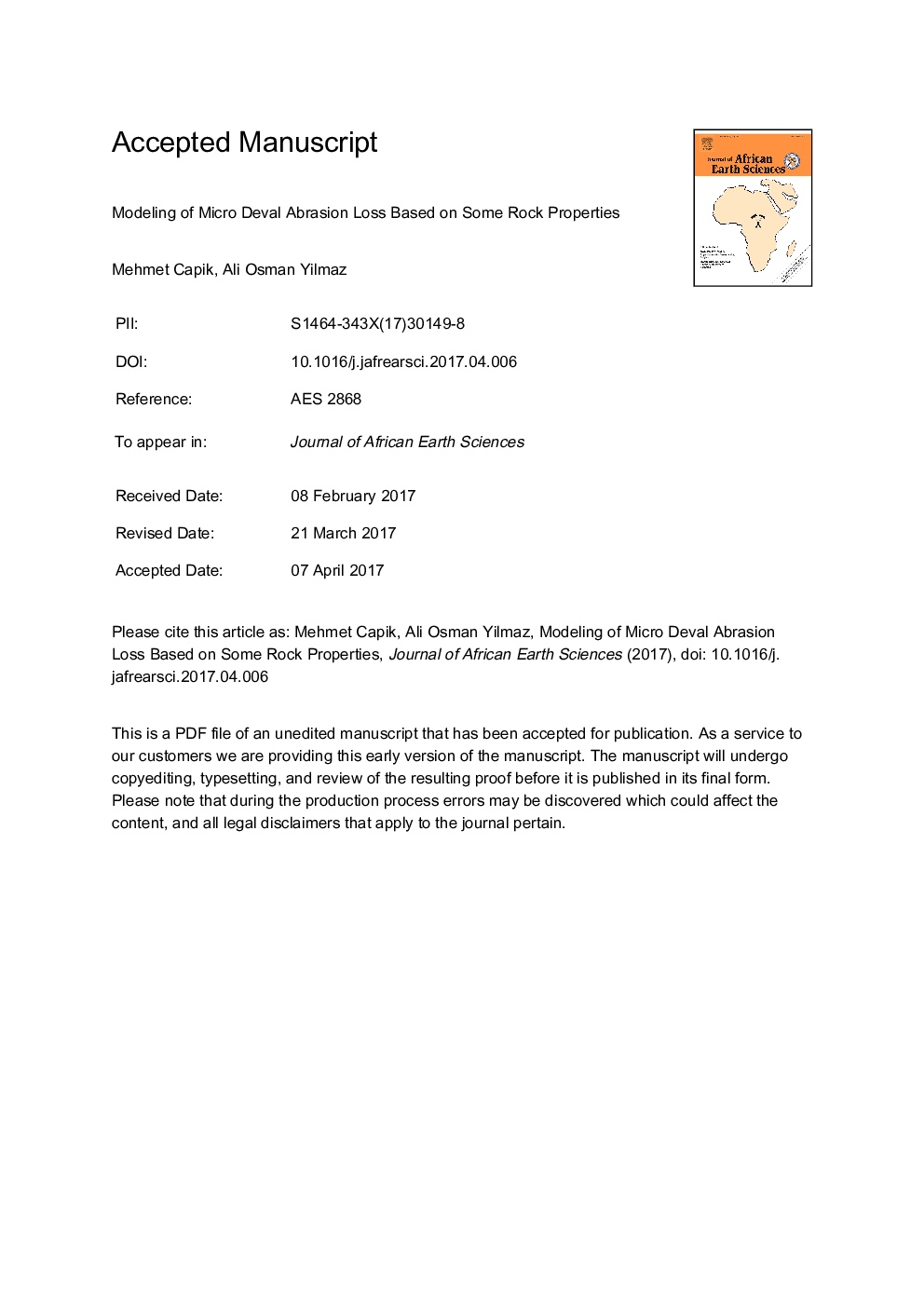| Article ID | Journal | Published Year | Pages | File Type |
|---|---|---|---|---|
| 5785581 | Journal of African Earth Sciences | 2017 | 24 Pages |
Abstract
Aggregate is one of the most widely used construction material. The quality of the aggregate is determined using some testing methods. Among these methods, the Micro Deval Abrasion Loss (MDAL) test is commonly used for the determination of the quality and the abrasion resistance of aggregate. The main objective of this study is to develop models for the prediction of MDAL from rock properties, including uniaxial compressive strength, Brazilian tensile strength, point load index, Schmidt rebound hardness, apparent porosity, void ratio Cerchar abrasivity index and Bohme abrasion test are examined. Additionally, the MDAL is modeled using simple regression analysis and multiple linear regression analysis based on the rock properties. The study shows that the MDAL decreases with the increase of uniaxial compressive strength, Brazilian tensile strength, point load index, Schmidt rebound hardness and Cerchar abrasivity index. It is also concluded that the MDAL increases with the increase of apparent porosity, void ratio and Bohme abrasion test. The modeling results show that the models based on Bohme abrasion test and L type Schmidt rebound hardness give the better forecasting performances for the MDAL. More models, including the uniaxial compressive strength, the apparent porosity and Cerchar abrasivity index, are developed for the rapid estimation of the MDAL of the rocks. The developed models were verified by statistical tests. Additionally, it can be stated that the proposed models can be used as a forecasting for aggregate quality.
Keywords
Related Topics
Physical Sciences and Engineering
Earth and Planetary Sciences
Geology
Authors
Mehmet Capik, Ali Osman Yilmaz,
